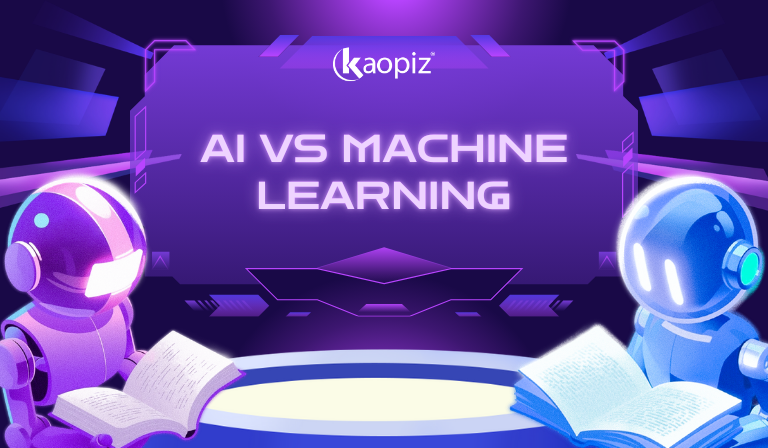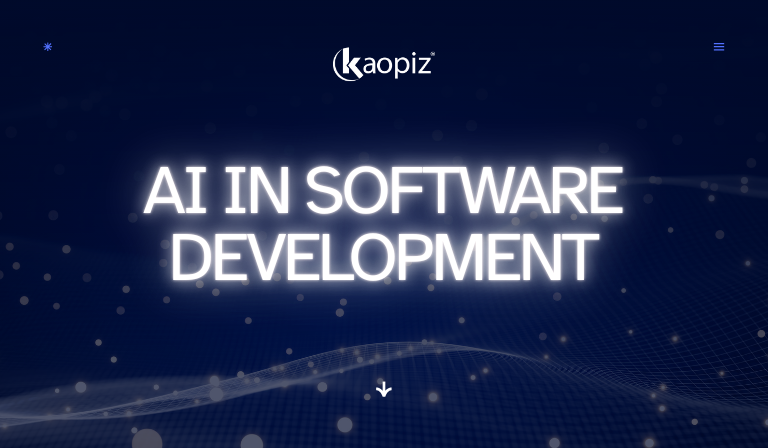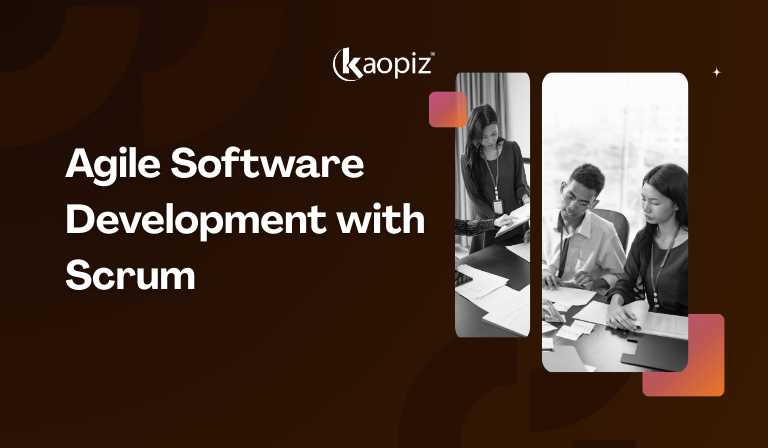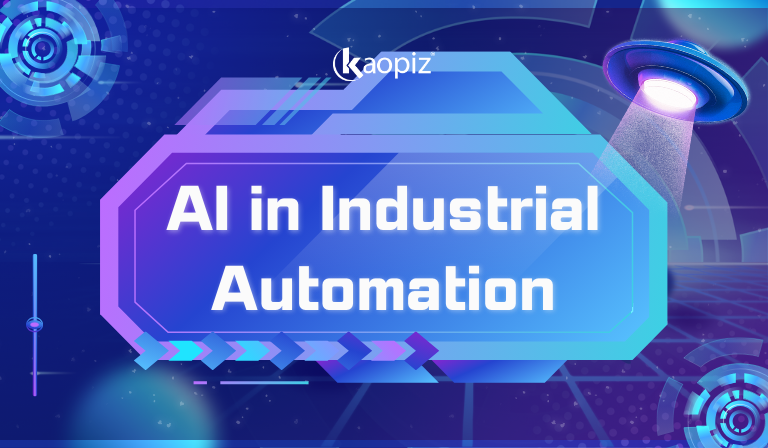AI in Healthcare: Benefits, Use Cases, & Future Trends in Singapore (2025 Guide)
Singapore is rapidly emerging as a leader in healthcare innovation, driven by strong government support and a national push for digital transformation. Backing this digital push is a wave of investment in MedTech and HealthTech startups.
In 2023, the artificial intelligence in healthcare Singapore market reached $78.1 million, with projections soaring to $881.3 million by 2030—a remarkable CAGR of 41.4% from 2024 to 2030. Notably, software solutions led in revenue share, underscoring the impact of AI in healthcare and its role in transforming care delivery, from diagnostics to patient engagement.
In this guide, we break down the types, benefits, and real-world applications of AI in healthcare—while offering insight into how your organization can leverage this transformative technology.
Table of Contents
- What Is AI in Healthcare?
- Types of AI in Healthcare
- What Are the Benefits of AI in Healthcare?
- How is AI Used in Healthcare (+Real-World Examples in Singapore)?
- What Are the Challenges of AI in Healthcare?
- How to Get Started with AI in Healthcare
- The Future Trends of AI in Singapore’s Healthcare Industry
- Why Partner with Kaopiz for Healthcare AI Development
- Conclusion
- FAQs
What Is AI in Healthcare?
AI in healthcare refers to the use of advanced algorithms, machine learning models, and data-driven systems to perform tasks that typically require human intelligence. These tasks include analyzing medical data, predicting patient outcomes, assisting in diagnosis, automating administrative work, and even personalizing treatment plans.

In simple terms, AI acts as a powerful digital assistant for healthcare professionals, enhancing accuracy, speeding up decision-making, and improving patient care.
For example, AI can help radiologists detect anomalies in medical images, assist doctors with diagnosis based on symptoms and history, or even power AI chatbots for appointment scheduling and follow-up care.
Types of AI in Healthcare
AI comes in various forms, each designed to enhance different aspects of clinical, operational, or patient-facing functions. Below are the most common types of AI technology in healthcare industry today:
- Machine Learning: Helps predict diseases and treatment outcomes by analyzing patient data patterns.
- Natural Language Processing (NLP): Automates tasks like clinical documentation and patient inquiries by understanding medical language.
- Computer Vision: Assists in diagnosing conditions through image analysis of X-rays, MRIs, and CT scans.
- Expert Systems: Offers clinical decision support based on rules and guidelines to recommend treatment options.
- Robotic Process Automation (RPA): Streamlines back-office tasks such as billing, claims processing, and scheduling.
- Generative & Agentic AI: While generative AI creates medical content, agentic AI can automate full workflows—ideal for tasks like insurance claim handling or patient onboarding.
What Are the Benefits of AI in Healthcare?
The advantages of AI in healthcare go beyond efficiency—they also include improved diagnostic accuracy and proactive treatment planning. These uses of AI in healthcare are evident in real-world applications across hospitals and clinics.
Here are the key benefits of AI in healthcare:
- Faster and More Accurate Diagnosis: AI can analyze medical images and patient data to detect diseases like cancer, heart conditions, and neurological disorders earlier and more accurately than traditional methods.
- Operational Efficiency: AI automates time-consuming tasks such as appointment scheduling, medical transcription, and billing, freeing time for healthcare staff to focus on patient care.
- Personalized Treatment: Machine learning algorithms can recommend treatment plans tailored to individual patients based on genetic, lifestyle, and clinical data, leading to better outcomes.
- Predictive Analytics: AI helps predict disease outbreaks, hospital readmissions, or patient deterioration, enabling timely interventions and resource optimization.
- Improved Patient Engagement: AI chatbots and virtual assistants enhance communication by answering FAQs, guiding patients through procedures, and improving satisfaction with 24/7 support.
- Cost Reduction: Automating diagnostics, administrative processes, and patient support reduces operational costs, making healthcare more accessible and scalable.
How is AI Used in Healthcare (+Real-World Examples in Singapore)?
Let’s discover AI use cases in healthcare—from diagnosis and treatment to operations and patient engagement. In Singapore, several public and private initiatives are already showcasing real-world AI in healthcare examples.
Medical Imaging and Diagnostics
AI-powered imaging tools are transforming how healthcare professionals detect and diagnose diseases. Machine learning algorithms can analyze X-rays, MRIs, CT scans, and pathology slides faster and often more accurately than traditional methods, helping doctors identify early signs of conditions like cancer, stroke, and heart disease.

In Singapore, hospitals such as the National University Hospital (NUH) and Tan Tock Seng Hospital (TTSH) have integrated AI into radiology workflows. These systems flag abnormal scans in real time, prioritize urgent cases, and reduce diagnostic errors, significantly improving clinical efficiency and patient outcomes.
Virtual Health Assistants and Chatbots
These tools are reshaping patient engagement by offering 24/7 support for symptom checking, appointment scheduling, medication reminders, and health education. These AI applications in healthcare reduce administrative workload for healthcare providers and improve patient satisfaction by delivering timely, consistent responses.
For example, HealthHub and other digital health platforms in Singapore have started incorporating chatbot features to guide patients through services and FAQs. Startups and clinics also leverage conversational AI to provide pre-consultation triage, reducing wait times and enabling more focused consultations with doctors.
Predictive Patient Risk Scoring
AI-driven predictive analytics helps healthcare providers identify patients at high risk of developing chronic conditions or experiencing complications. By analyzing large datasets—including EHRs, lab results, and lifestyle factors—AI models can forecast potential health risks and recommend early interventions.
Hospitals and research institutions in Singapore are exploring AI-based risk scoring to manage population health more proactively. For example, predictive models are used to flag elderly patients who are at risk of readmission or to detect early signs of diabetes and cardiovascular diseases, allowing for timely, personalized care plans.
Claims Processing Automation
AI in healthcare industry streamlines the complex process of medical claims by automatically verifying patient information, identifying coding errors, and flagging potential fraud. This reduces manual workload, minimizes human error, and accelerates reimbursement cycles, benefiting both providers and insurers.

In Singapore, private insurers and HealthTech startups are adopting AI-powered claims platforms that can process high volumes of insurance claims with greater accuracy and speed. By integrating AI with OCR and NLP, these systems extract and validate information from documents like medical reports and invoices, enabling faster approvals and improved customer satisfaction.
Drug Discovery and Clinical Trial Matching
The traditionally slow and costly processes of drug discovery and clinical trials are transformed by AI. By analyzing large-scale biomedical data, AI models can identify promising drug compounds, predict their efficacy, and accelerate the early stages of development. This shortens the time required to bring new treatments to market.
AI streamlines clinical trials by automating patient screening and matching based on health data and genetics. In Singapore, where precision medicine is growing, this boosts research, cuts costs, and accelerates timelines.
Hospital Resource Management
Smarter hospital operations depend on accurate demand forecasting and optimal use of beds, staff, and medical equipment. Predictive algorithms analyze past admissions, seasonal patterns, and real-time patient data. They anticipate demand spikes, enabling proactive planning and resource allocation.
In Singapore, leading healthcare providers are leveraging intelligent systems to enhance patient flow, reduce wait times, and improve capacity planning. This results in more efficient care delivery and better patient experiences across the board.
What Are the Challenges of AI in Healthcare?
While the benefits are clear, the disadvantages of AI in healthcare include data privacy risks and bias.

Understanding the risks of AI in healthcare is essential for safe deployment.
- Data Privacy and Security: AI systems require access to large volumes of sensitive patient data. Without robust safeguards, there’s a risk of data breaches or misuse. Compliance with regulations like Singapore’s PDPA is essential to maintain trust.
- Bias and Fairness: AI can unintentionally inherit human biases from the data it’s trained on, potentially leading to unfair treatment recommendations or care disparities. Ensuring fairness requires diverse, high-quality datasets and ongoing model validation.
- Infrastructure and Integration: Many healthcare providers lack the IT infrastructure needed to support advanced AI systems. Integrating AI into legacy systems and clinical workflows can be technically demanding and costly.
- Regulation and Accountability: The legal framework for AI in healthcare is still evolving. Questions remain about who is responsible when AI makes a critical error—developers, users, or institutions?
- Clinician Trust and Adoption: Building confidence among medical professionals is vital. AI must be transparent, explainable, and demonstrably effective to gain widespread clinical adoption.
Successfully overcoming these challenges of AI in healthcare requires strategic planning, ethical design, and the right technology partner.
How to Get Started with AI in Healthcare
The uses of AI in healthcare industry requires a strategic, step-by-step approach to ensure safe, effective, and sustainable implementation:
- Step 1: Identify the Right Use Cases
Start by evaluating which processes can benefit most from AI, such as medical imaging, patient triage, claims processing, or administrative workflow automation. Focus on high-impact areas that involve repetitive tasks, large datasets, or decision support.
- Step 2: Assess Data Readiness
Ensure your organization has access to clean, structured, and secure data. High-quality datasets are critical for training and deploying AI models. Work towards establishing robust data governance frameworks to manage data privacy and compliance with the PDPA.
- Step 3: Build Internal AI Awareness
Educate clinical and non-clinical stakeholders about AI’s potential and limitations. Fostering a culture of digital adoption and upskilling your workforce are key to overcoming resistance and unlocking AI’s full potential.
- Step 4: Choose the Right Technology Partner
Collaborate with an experienced AI development partner like Kaopiz, who understands both the healthcare domain and local regulations. A good partner will guide you through ideation, prototyping, compliance, and deployment phases.
- Step 5: Start with a Pilot Project
Test your AI solution in a controlled setting. Monitor results closely—such as time saved, diagnostic accuracy, or patient satisfaction—and refine the model before wider rollout.
- Step 6: Ensure Ethical and Regulatory Compliance
AI in healthcare must be explainable, transparent, and fair. Engage with legal, ethical, and clinical experts to develop guidelines for responsible AI use. Align your implementation with Singapore’s regulatory frameworks.
The Future Trends of AI in Singapore’s Healthcare Industry
Singapore is poised to leverage AI to shape the next phase of healthcare innovation.

Here are key trends that will drive transformation in the years ahead:
- Precision Medicine & Genomics: Integration of AI with genomic data will enable personalized treatment plans—tailoring medication, dosage, and therapy based on individual genetic profiles, improving outcomes while reducing side effects.
- Digital Twins & Real-Time Patient Monitoring: Virtual models—or “digital twins”—of patients providing real-time simulation of health conditions using IoT data, allowing predictive interventions and tailored treatment adjustments.
- Robotic Assistance & Automation: Surgical robots and AI-automated pharmacy systems will enhance precision, reduce manual workload, and minimize human error, making procedures safer and more efficient.
- Telemedicine with AI Support: AI-powered telehealth platforms will offer symptom triage, remote diagnostics, and follow-up care, expanding access to quality care in homes and community settings.
- Agentic AI for End-to-End Workflows: From clinical decision support to administrative automation, agentic AI systems will manage multi-step processes—like patient admission, discharge planning, and post-care outreach—autonomously.
Why Partner with Kaopiz for Healthcare AI Development
As the healthcare industry in Singapore rapidly embraces AI, finding a reliable and experienced development partner is critical. With over 10 years of experience, Kaopiz stands out with a proven track record (500+ successful projects for 150+ global clients) and deep domain expertise in AI development to help healthcare providers, startups, and MedTech companies turn ideas into impactful solutions.
Why Choose Kaopiz
Here are the reasons why partnering with us:
- Proven Healthcare Experience: We’ve built AI solutions for medical imaging, patient risk scoring, and clinical workflow automation—tailored to healthcare needs.
- End-to-End AI Services: From ideation to deployment, our team covers all stages of AI development, including model training, system integration, and maintenance.
- Compliance-Ready Solutions: We ensure full alignment with Singapore’s PDPA and MOH regulations, prioritizing data privacy, security, and ethical AI use.
- Local Insight, Global Quality: With teams in Vietnam and experience across APAC, we bring both cost efficiency and a strong understanding of Singapore’s healthcare landscape.
- Flexible Engagement Models: Kaopiz offers scalable development options—whether you need a PoC, full product build, or a dedicated support team.
Case Study: AI-Powered Fitness App
Kaopiz partnered with a fitness and wellness company to develop an AI-driven mobile application that transforms traditional workouts into interactive, engaging experiences. The app uses camera-based motion analysis to evaluate user movements, providing real-time feedback and performance scores.

The client wanted to:
- Help users maintain proper form during workouts.
- Increase user engagement through gamification.
- Streamline progress tracking and managing in-app purchases efficiently.
We delivered a feature-rich fitness app powered by AI that:
- Analyzes user movements through the camera and gives instant performance feedback.
- Includes gamified elements like quests, rankings, and virtual pets to boost motivation.
- Offers an admin dashboard for managing users, content, notifications, and sales.
The result is a dynamic fitness platform that keeps users engaged and ensures effective workouts, while giving businesses the tools to manage and grow their offerings.
Conclusion
AI is revolutionizing healthcare in Singapore—enhancing diagnostics, personalizing care, automating operations, and improving patient outcomes. By weighing the pros and cons of AI in healthcare, organizations can make informed decisions about integration and long-term strategy.
Whether you’re a hospital, clinic, MedTech startup, or enterprise solution provider, embracing AI in healthcare today means staying competitive tomorrow. At Kaopiz, we help healthcare organizations unlock the full potential of AI—from strategy to implementation—ensuring each solution is compliant, secure, and truly impactful.
Ready to take the next step in your AI healthcare journey? Let’s build it together.
FAQs
Partner with an experienced IT outsourcing company like Kaopiz. We guide you through every step—from identifying use cases to building and deploying AI solutions—without needing an internal AI team.
Look for partners with healthcare experience, compliance knowledge (e.g., PDPA, HIPAA), and a proven track record. Kaopiz combines domain expertise, agile processes, and end-to-end support tailored to the healthcare industry.
It depends on the scope. A basic AI model or chatbot may take 1–3 months, while full-featured systems (e.g., diagnostics or workflow automation) may take 4–6+ months. Kaopiz ensures fast, flexible timelines with clear milestones.
Costs vary based on complexity, features, and compliance needs. Small AI tools may start from $10,000–$30,000; larger solutions range higher. Kaopiz offers tailored proposals based on your goals and budget.
Yes. AI systems rely on structured and digital data. If your records are still paper-based, Kaopiz can support your digital transformation first, preparing your data environment for AI integration.
2 Replies to “AI in Healthcare: Benefits, Use Cases, & Future Trends in Singapore (2025 Guide)”
Leave a Comment
Trending Post






















Pingback:Healthcare App Development Cost in Singapore (2025 Guide)
Pingback:Top Healthcare App Development Companies in Singapore (2025)